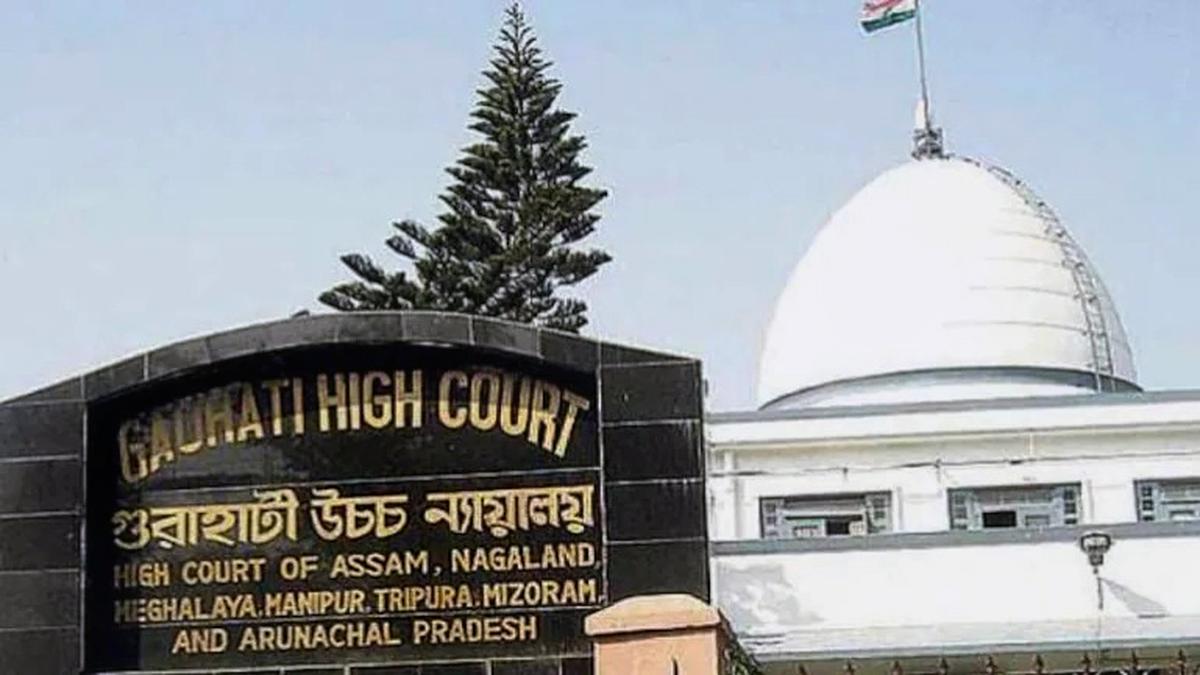
Constitute nodal authority for declared foreigners, Gauhati High Court tells Assam government
The Hindu
Gauhati High Court orders Assam govt. to constitute nodal authority for declared foreigners to report to & be produced before, with rights & entitlements.
GUWAHATI
The Gauhati High Court has asked the Assam government to constitute a nodal authority for a person declared a foreigner to report to or be produced before.
The court on December 13 heard a writ petition by Kuddus Ali, who challenged the 2017 judgment of a Foreigners’ Tribunal (FT) in western Assam’s Barpeta declaring him a non-citizen. The argument in the case revolved around the rights and entitlements of a person declared a foreigner during the period of his stay in India, particularly in Assam.
Judges Achintya Malla Bujor Barua and Robin Phukan dismissed the petition while observing that they did “not notice any illegality or unreasonableness” in the view of the FT and that Mr. Ali would have to be declared a foreigner who entered Assam from the specified territory (Bangladesh) after March 25, 1971.
The date is the cut-off point for the detection and deportation of “illegal migrants” or foreigners in Assam.
State’s Additional Advocate-General G. Mazumdar said a declared foreigner would have to return the documents issued to him as an Indian citizen and the authorities would have to take necessary steps such as deleting his name from the voters’ list, and taking over his land, and prohibiting him from continuing in any post, position, or status he may have incorrectly acquired while claiming to be an Indian citizen.
To this, the court observed: “In order to coordinate all such requirements, we are of the view that it would be appropriate for the Chief Secretary to the government of Assam to appoint a nodal authority who may exercise inter-departmental jurisdiction for doing the needful as well as coordinate with the other departments for foreclosing the declared foreigner from retaining any such documents he is no longer entitled to.”

Hampi, the UNESCO-recognised historical site, was the capital of the Vijayanagara empire from 1336 to 1565. Foreign travellers from Persia, Europe and other parts of the world have chronicled the wealth of the place and the unique cultural mores of this kingdom built on the banks of the Tungabhadra river. There are fine descriptions to be found of its temples, farms, markets and trading links, remnants of which one can see in the ruins now. The Literature, architecture of this era continue inspire awe.

Unfurling the zine handed to us at the start of the walk, we use brightly-coloured markers to draw squiggly cables across the page, starting from a sepia-toned vintage photograph of the telegraph office. Iz, who goes by the pronouns they/them, explains, “This building is still standing, though it shut down in 2013,” they say, pointing out that telegraphy, which started in Bengaluru in 1854, was an instrument of colonial power and control. “The British colonised lands via telegraph cables, something known as the All Red Line.”

The festival in Bengaluru is happening at various locations, including ATREE in Jakkur, Bangalore Creative Circus in Yeshwantpur, Courtyard Koota in Kengeri, and Medai the Stage in Koramangala. The festival will also take place in various cities across Karnataka including Tumakuru, Ramanagara, Mandya, Kolar, Chikkaballapura, Hassan, Chitradurga, Davangere, Chamarajanagar and Mysuru.








